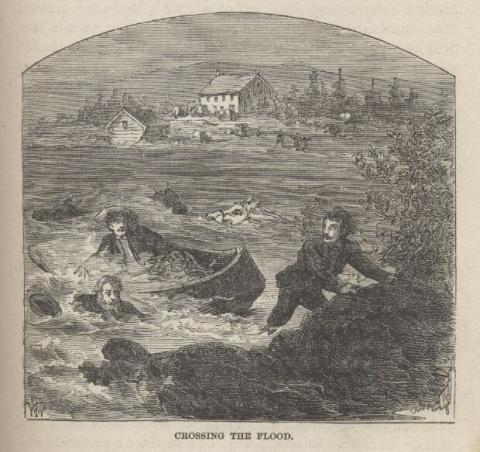Several sources identify Williams Station as a Pony Express stop. Roy Bloss also lists the station as Honey Lake Smith's. According to one source, J. 0. Williams and his two brothers managed station operations until May 7, 1860, when Indians killed J. O.'s brothers and three other men. These deaths initiated the Pyramid Lake Indian War. The exact location of this early station has not been determined. (NPS)
The point originally plotted is half way between Carson Sink and the reported location for Hooten Wells Station (39.281700134277 -118.90571594238)
"Williams Station was a combination stage station, general store, and saloon. It was one room, situated on the north-west bank of the Carson River. Three brothers from Maine, James O. Williams (the oldest) and his two younger brothers - Oscar Williams and David Williams.
The station was attacked and burned by Indians in May of 1860. After a considerable amount of torment from white settlers, some members of the Paiute Tribe decided they had had just about enough, and raided Williams Station, killing several. The result was the Paiute Indian War. A militia force was sent to teach the aborigines a lesson, but instead were lured into an ambush north of Nixon where 46 of their number were killed. Before it was all over, seven stations had been burned and employees killed.
Honey Lake Smith rebuilt and ran the station afterwards."
http //www forgottennevada org /sites /williams - broken link
"We rode through a snow-storm for two or three days, and arrived at “Honey Lake Smith’s,” a sort of isolated inn on the Carson river. It was a two-story log house situated on a small knoll in the midst of the vast basin or desert through which the sickly Carson winds its melancholy way. Close to the house were the Overland stage stables, built of sun-dried bricks. There was not another building within several leagues of the place. Towards sunset about twenty hay-wagons arrived and camped around the house and all the teamsters came in to supper—a very, very rough set. There were one or two Overland stage drivers there, also, and half a dozen vagabonds and stragglers; consequently the house was well crowded.
We walked out, after supper, and visited a small Indian camp in the vicinity. The Indians were in a great hurry about something, and were packing up and getting away as fast as they could. In their broken English they said, “By’m-by, heap water!” and by the help of signs made us understand that in their opinion a flood was coming. The weather was perfectly clear, and this was not the rainy season. There was about a foot of water in the insignificant river—or maybe two feet; the stream was not wider than a back alley in a village, and its banks were scarcely higher than a man’s head.
So, where was the flood to come from? We canvassed the subject awhile and then concluded it was a ruse, and that the Indians had some better reason for leaving in a hurry than fears of a flood in such an exceedingly dry time." (Roughing It)
